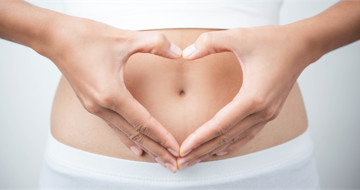In the context of high-level medical academia, the approach to managing Short Bowel Syndrome (SBS) is underscored by a pre-emptive and holistic strategy, especially in the perioperative phase. This encompasses a nuanced understanding of the patient’s nutritional status and the anatomical and functional capacity of the remaining intestine post-surgery. The therapeutic regimen is meticulously tailored, taking into account several critical factors:
Preoperative Nutritional Optimization
- Nutritional Assessment and Correction: Prior to surgery, a thorough evaluation of the patient’s nutritional reserves is imperative, with the aim to correct any malnutrition or specific nutrient deficiencies through enteral nutrition supports, such as tube feeding or specialized nutritional drinks. This foundational step is vital for improving surgical outcomes and postoperative recovery.
Postoperative Dietary Management
- Initial Postoperative Nutrition: The commencement of oral intake post-surgery is encouraged to capitalize on the residual absorptive functionality of the intestine, thereby fostering enteric adaptation. The concept of ‘villi training’ is introduced to enhance the absorptive and adaptive capacity of the intestinal mucosa, particularly when up to 50% of the small intestine is preserved.
- Specific Considerations Based on Anatomical Resection:
- Ileum vs. Jejunum Resection: The differential resection of the ileum or jejunum necessitates distinct dietary adjustments, given their unique roles in nutrient absorption. The ileum’s pivotal function in bile acid reabsorption and Vitamin B12 absorption necessitates careful monitoring and supplementation in cases of ileal resection.
- Ileocecal Valve Integrity: The preservation or loss of the ileocecal valve significantly influences the management strategy, given its role in regulating intestinal transit time and preventing bacterial overgrowth.
- Colectomy Implications: The presence or absence of the colon, following colectomy, fundamentally alters the fluid and electrolyte management strategy, given the colon’s capacity for salvage absorption of water and electrolytes.
Specialized Nutritional Interventions
- Parenteral Nutrition: In scenarios where the absorptive capacity of the remaining intestine is insufficient or compromised, parenteral nutrition becomes an indispensable component of the management strategy, providing essential nutrients directly into the bloodstream.
- Adaptation and Rehabilitation: The adaptation of the residual intestine is a dynamic process, potentially extending up to 12 months post-resection. It involves not only ‘villi training’ but also may necessitate adjunct parenteral support, particularly in cases where oral intake alone is insufficient to meet nutritional demands.
- Bile Acid Management: In cases of significant ileal resection or resection of the ileocecal valve, the management of bile acid malabsorption and resultant diarrheal sequelae becomes a focal point of postoperative care.
Long-term Nutritional Strategy
- Chronic Management: For patients with severe short bowel, defined by a residual length of 30-50 cm, long-term parenteral nutrition is often requisite. Such patients warrant referral to specialized centers equipped to provide comprehensive long-term nutritional support and monitoring.
